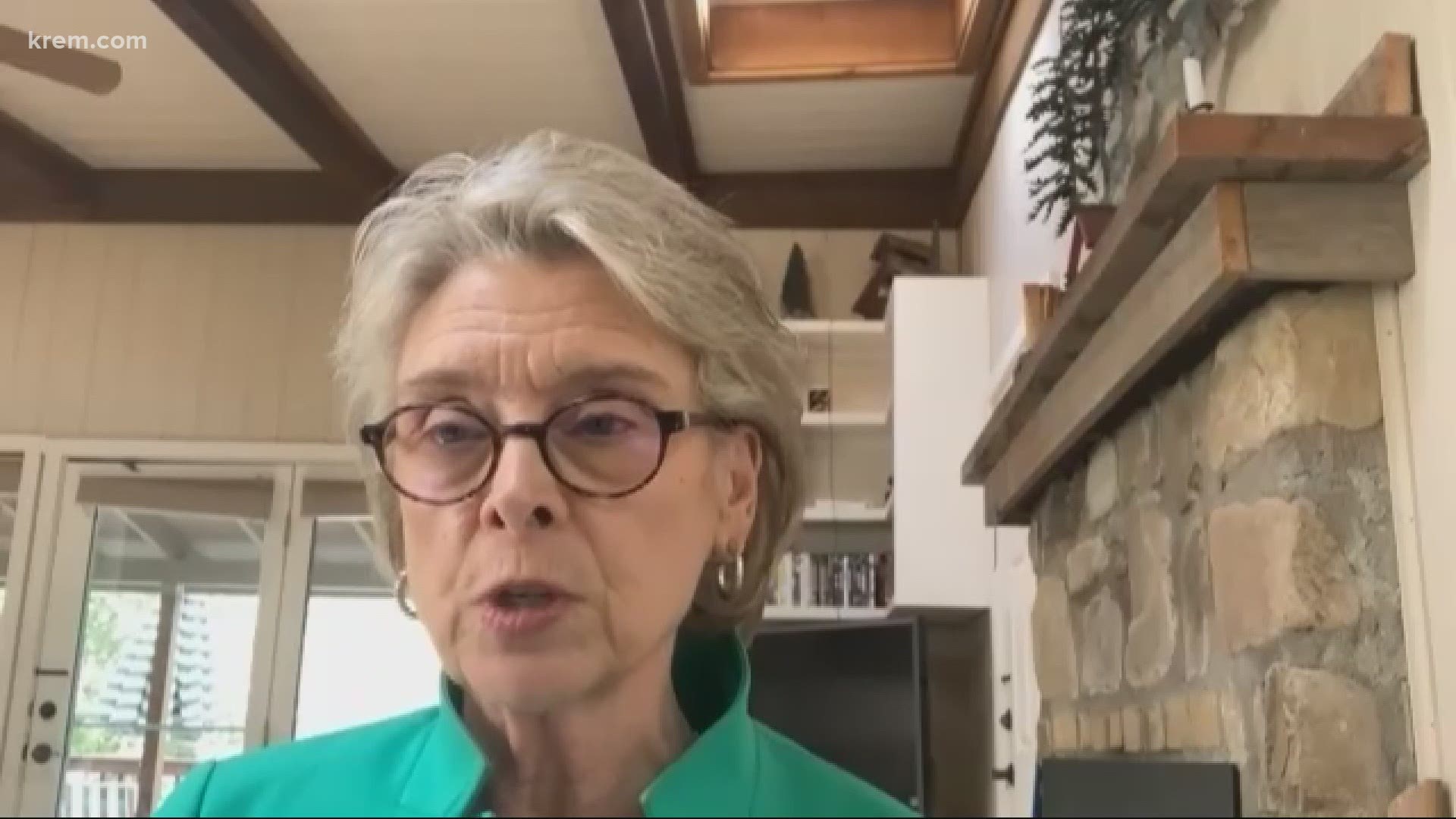SPOKANE, Wash. — Former Washington Governor Christine Gregoire is advocating for an urgent push to combat homelessness in the state, based on a study of efforts conducted in some California cities.
Gregoire now heads up Challenge Seattle, a business group primarily focused on King County. The organization recently published a study with research from Boston Consulting Group, focusing on solutions to chronic homelessness.
Chronic homelessness refers specifically to those who have some sort of disability, and have been out on the street for extremely long periods of time.
"Those are the folks that we see more often than not in tents and camps and so on," Gregoire said in an interview with KREM. "Not the individual who... from domestic violence suddenly finds themselves in a once in a lifetime homelessness situation."
Those are also the people who tend to take up the most resources.
The report estimates Spokane County currently has 485 people who fit the description. And the numbers in Washington are rising, even as some cities in California like San Diego, have all but halted the increase in chronic homelessness.
"It's at 2 percent annually [in San Diego]," said Gregoire. "And over the last 5 years, King County has been at 42 percent. Spokane at 27 percent. Vancouver at 33 percent. So obviously we need to make a course correction, and we need to look at what they've done to be successful in Bakersfield and San Diego, and replicate what we can here."
One of the biggest issues that they found with the current approach to homelessness is that resources are too often siloed apart from one another, making them less effective.
"One lesson we learned quite clearly: housing alone won't do it. Services alone won't do it. You absolutely have to have the both," said Gregoire. "And you have to have the services on demand. For example, if I'm having a traumatic event in my life, healthcare, mental health, whatever... I can't wait for 3 weeks, 5 weeks, 5 months for an appointment. I need attention now."
In California, the cities remedied that in part by creating command centers with dedicated case workers who go directly to the people in need and follow their progress.
This echoes a few programs that already exist in Spokane, like the EnVision Center, but Gregoire says state and local governments should be dedicating even more money to quickly attacking this problem, perhaps using federal stimulus funds.
"Every time [a chronically homeless] individual goes to an emergency room, it costs taxpayers a lot of money. Every time that individual goes to some crisis clinic, it costs a lot of money," she said. "So at the end of the day what we found is it costs us more for not doing what we can to succeed, as opposed to what it would cost us if we dedicated our human and financial resources to doing what really does bring about success."
She said some of those funds could go to emergency housing in the form of buying motel rooms, a program she says showed success in California, while waiting for more permanent housing to become available.

